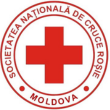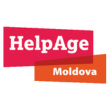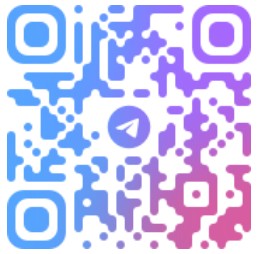Organizații vizate:
Achiziții de bunuri și contractări de servicii
- Detalii
- Categorie: Achiziție bunuri, Contractare Servicii
BSF Moldova is looking for an individual Consultant or a Company to design a Self-Learning module for DRR thematic
Informațiile prezentate în articolul de mai jos pot să nu mai fie actuale sau să nu mai reflecte activitățile și programele curente. Anunțul este păstrat în arhivă pentru a asigura transparența și accesul public la informațiile despre inițiativele și proiectele implementate anterior.

BSF Moldova is looking for an individual Consultant or a Company to design a Self-Learning module for DRR thematic
Who are we?
Bibliothèques Sans Frontières (BSF) works to empower people through access to information, education, and culture. To achieve this, BSF takes libraries to places where they don't exist, to make them accessible to the most vulnerable populations.
Since its creation in 2007, BSF has been deploying strategies to disseminate information based on tools, content carefully selected according to the needs of the public, and support for the field’s actors.
Our action relies on 3 tools that provide access to quality resources and activities designed with the user's experience in mind:
- The Ideas Box, a media library in kit shape created with designer Philippe Starck, which can be rapidly deployed in any location, to create a cultural, educational, and information access space. BSF has deployed over 150 IDBs since 2014.
- The Ideas Cube, a server that provides access to a digital and autonomous library, operates without an internet connection to provide access to information in the most remote locations.
- The Kajou Card is a technological tool developed by BSF. It is inserted into the SD port of an Android phone, and gives access to thousands of preloaded contents, without the need for an internet connection.
Project context
Reducing vulnerability to disaster risks and strengthening socio-economic resilience in Moldova.
The consortium of NGOs ACTED, IMPACT and BSF aims to increase people's resilience to natural and man-made hazards in the Anenii Noi region of Moldova. The Anenii Noi region is particularly vulnerable to a range of natural hazards. To achieve this objective, the consortium will support local authorities, civil society organizations, and rural communities in the region.
BSF will work with libraries and CSOs, which are key actors at a local level in increasing community resilience to natural and man-made hazards in the Anenii Noi region. 8 of them will be selected to receive a toolkit including an IDC server and a micro-library. The content provided in Ukrainian, Russian, and Romanian will enable them to act as local relays for improved access to educational and informational content relating to disaster risk, protection, and resilience.
This cross-cutting, multi-sectoral project includes several activities designed to strengthen libraries in their role as information first responders in the Anenii Noi Rayon and offer DRR-related training alternatives to the various groups targeted by the project.
Learning is one of the pillars of the process proposed by our approach. The development of an online and offline course with about 20 self-learning modules in 2 languages is in line with our logic. We aim to propose learning activities that complement and support the tools offered in the libraries on the one hand, and on the other, will enable users to pursue their learning and knowledge of DRR at their own pace.
The self-learning modules will be displayed on two technological supports:
- On the Kajou Card, a micro-SD card that can be installed on any Android smartphone and that gives access to a digital library and interactive courses;
- On an online platform hosted by the ABRM (Moldovan National Library Association) website
Mission objectives
The purpose of these Terms of Reference is to design and develop a whole course with a certain number of self-learning modules on Disaster Risk Reduction (DRR, natural and man-made hazards). The module should be based on the SENDAI Framework for Disaster Risk Reduction 2015-2023 and the ABRA (Area Based Risk Assessment) of the Anenii Noi Rayon, produced by REACH. BSF will provide a copy of both documents to bidders.
The aim of those self-learning modules must tackle two objectives:
- To raise awareness on the current issues linked to natural and man-made hazards in Moldavia, and more specifically in the Anenii Noi Rayon
- To give beneficiaries the keys to understanding those issues and propose practical solutions to ensure their own and other people’s safety.
Please note: the technical part (i.e. deployment of the module on the kajou + potentially online) is not requested in the consultancy.
Overall learning objective and selected topics
The overall objective of those Self-learning modules is to enable users to discover and deepen their knowledge of the various themes identified in the following table. Those topics must be addressed in a pedagogical, interactive, and entertaining way:
|
Module |
Module description |
|
Module 1 |
What is Disaster Risk Reduction (DRR)? |
|
Module 2 |
(the first major agreement of the post-2015 development agenda, it provides Member States with concrete actions to protect development gains from the risk of disaster) (Gender action plan to support the implementation of the Sendai Framework for DRR 2015-2030) |
|
Module 3 |
Emergency safety planning : · IN: Human and nature-induced hazard · First aid, preparing survival kit, etc. |
|
Module 4 |
Sustainable agriculture |
|
Module 5 |
Fire (in the wild and urban places) |
|
Module 6 |
Drought |
|
Module 7 |
Flood |
|
Module 8 |
Extreme temperatures: Cold and Heat waves |
|
Module 9 |
Wastewater and Waste management |
|
Module 10 |
Deforestation |
Target Groups / Learners
The target groups for those Self Learning modules are
- Children and young teenagers aged from 8 to 14 years.
- Adult population, Anenii Noi Rayon, aged from 15 years old and more
Having two distinct target audiences means separating modules when needed. The number of modules can go up to 20.
Technical requirements
Each Self-learning module should be designed with interactive elements such as:
- Audio and the integration of podcasts or audio narration;
- Video with interaction;
- Activities that give learners hands-on practice with checklists and practical exercises;
- A wide variety of exercises and situations, to limit learner boredom;
- Games, Quizzes, etc.
Tracking of Learners’ Progress
- After each section/module, learners should complete a short assignment (such as a quiz). When the learners successfully complete this assignment, the section is shown as “completed.”
Languages
- The provider must create two versions of the course: one in Romanian and one in Russian.
- The provider should create a table including the text of those versions, so that translation into other languages could be done later if needed
- The provider must select materials suitable for each language. The supports (videos, audio...) might be different if the same content does not exist in both languages.
Rights
- The provider will have to choose from this list as a priority while establishing the list of support content for the modules. If he or she does not find there enough relevant material, the newly selected material will need to respect copyright rules.
- All rights of use to texts, media used (photos, illustrations, images, and audiovisual material) and case studies are transferred to BSF.
Working methods
The Consultant will be coordinated by the BSF Moldova Program Manager and BSF Moldova Content Advisor.
- A kick-off meeting will be held at the start of the mission, attended by the education team;
- BSF-Moldova will provide documents relevant to module development;
- A schedule of meetings and a follow-up mechanism between the consultancy team and BSF will be established.
- Meetings with DRR specialists are also possible;
- A feedback meeting (linked to the presentation session) will be held at the end of the assignment to jointly validate the recommended orientations and deliverables.
Modalities
The mission will start as soon as possible and will be carried out remotely.
The schedule of deliverables will be planned between the 2 parties at the beginning of the contract. However, the mission will end when all deliverables are handed in, no later than JUNE 22nd, 2024.
Remuneration for this assignment will be fixed by mutual agreement between the parties following a financial proposal from the candidate. The total amount will be paid by bank transfer in two installments, according to the following conditions:
- 50% at the start of the assignment
- 50% upon validation of all deliverables by BSF.
Payments will be made in MDL from Moldova.
Contact and Documents to submit
The application must include:
- Technical note describing the proposed methodology
- Timetable of milestones
- Price proposal (must include the VAT) in MLD
- Resume of the consultant (s) working on the assignment
- Portfolio of their work on pedagogical engineering about the same or similar topics
Please send your proposal by email to:
- Roman Marin: roman.marin@bibliosansfrontieres.org
- Object: Application Self-Learning Module
- Submission deadline: May 11, 204
All incomplete applications will not be considered.








